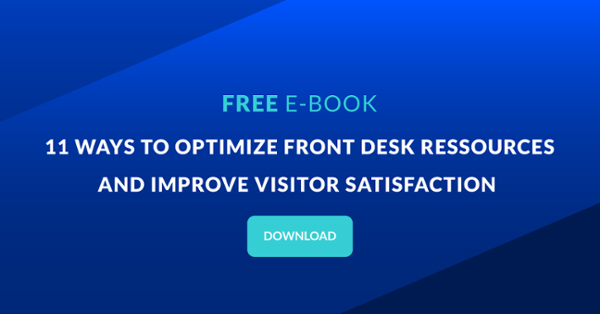Client and case confidentiality is a key tenet of any law firm. The privilege of confidentiality fosters a bond of trust between attorneys and clients. You can improve the productivity of your law firm meetings in a simple yet effective way. There are 3 key steps law firms can take to ensure total client confidentiality in every corner of the firm.
3 steps to client confidentiality in your law firm
Duties related to confidentiality, such as the attorney-client privilege, assure that clients are open and honest with their representation so lawyers can provide the best advice. Attorneys, of course, know not to discuss sensitive or privileged information regarding clients or cases in public places. However, the firm's offices, conference rooms, hallways, and reception desks are also hot beds for potential information leaks.
Here are the top three steps to take to ensure total client confidentiality at your next meeting.
1. Ensure all security settings in the firm’s software solutions are upheld
Cybersecurity extends beyond mitigating the risk of cyberattacks to safeguard client and firm information. As Chief Information Officer, you know the rise of technological services designed to optimize efficiency and provide better, more comprehensive service brings with it its own share of confidentiality challenges.
The information that could be available to a savvy hacker is not just privileged attorney-client communications, but confidential client business information, case information, intellectual property, personally identifiable information, and even payment information. By now, firms are increasingly turning to new security standards such as two-step authentication, intrusion prevention tools, and encrypted email, USB drives, and laptops.
But your technological security can not stop there. You need to make sure security standards are also upheld by your software providers. There are three main things to be concerned about when selecting your supplier:
- Third-party affirmation through a recognized certification
- OWASP Top 10 Security Risks
- GDPR Compliance & DPA (Data Processing Agreement)
These key points will guarantee data security and privacy from your supplier. You can read more on safety precautions and how to tackle workplace security threats.
With meeting management and resource scheduling platforms such as AskCody, key security settings are applied and you can further customize for the security needs to match your firm. AskCody’s ironclad confidentiality settings extend from the Meeting Room Displays and Meeting Dashboards to the entire Workplace Central cockpit. Robust privacy settings ensure the complete anonymity of attendees and privacy of meeting subjects within the system without skimping on any of the benefits and convenience that AskCody’s one-click booking system offers.
Consider also your front desk check-in system. What standards and systems are in place to ensure the complete confidentiality of every client that walks through your firm’s doors? If they have to say their name aloud to a waiting room full of other clients, you are already breaking confidentiality within the first few feet.
A platform like AskCody Visitor Management lets clients securely check-in without speaking to the front desk staff at all. They can check-in, print documents, and alert their respective attorney that they have arrived with the push of a button right from their smartphone or a kiosk at the front desk. The Visitor Management system is directly integrated with the rest of the AskCody Meeting Management suite within Outlook and Microsoft 365 to ensure a seamless experience.
2. Extend confidentiality training to legal and non-legal staff
Everyone who walks the halls of your firm should be well-versed in confidentiality. Attorneys, clerks, paralegals, administrative assistants, and outsourced service providers must all be given some degree of training.
Almost everyone knows not to discuss cases or client circumstances outside the confines of the secure office, but that is just the beginning. Do all of your legal secretaries know how to address clients when speaking to or about them? Is every contractor aware of any firm standards on using clients' first versus last names? What one administrative assistant may think of as small talk could actually be a significant breach of trust for a client who requests complete confidentiality of their relationship with the firm.
Create standards for your firm that include the use of names, rules for email (resist the use of Reply All!), and the use of software applications such as Adobe and resource management platforms. Document them, and ensure they are available to every internal employee and external contractor who works at the firm.
3. If possible, go paperless
If your firm is still using paper files, there should be a procedure for handling every piece of paper. When possible, do not remove them from the office. Never leave paper files unattended in a conference room, front desk, car, or other shared office space. There should also be a disposal process in place with a professional paper shredder to ensure confidentiality even long after a case may end.
Going paperless removes a significant amount of burden from the storing, handling, and disposing of paper files. A robust cloud-based system is more secure and convenient. Documents can be easily and securely shared, accessed, and edited from anywhere on any device.
By transitioning to a paperless system, law firms can greatly improve the efficiency and security of their document management processes. Storing files digitally eliminates the risk of physical documents being lost, damaged, or accessed by unauthorized individuals. With a cloud-based system, lawyers can easily access and share documents with clients, colleagues, and other stakeholders, regardless of their location.
Implementing a paperless system requires careful planning and consideration. Law firms should invest in secure document management software that provides robust encryption and access controls to safeguard sensitive information. Additionally, staff should receive comprehensive training on how to effectively use the digital platform and follow proper protocols for document handling and sharing.
Keeping it confidential
Maintaining client confidentiality is not just a legal obligation, but also a moral duty for any law firm. The consequences of failing to uphold this duty can be detrimental, not only to the reputation of the clients involved but also to the overall success and longevity of the firm itself. Confidentiality should not be limited to the attorney-client privilege alone; it should permeate every aspect of the firm's operations, from communication protocols to meeting management.
To truly ensure the highest level of confidentiality, law firms must embrace the right tools and technologies. It is no longer enough to rely solely on traditional methods of communication and document storage. With the advancement of technology, law firms have the opportunity to enhance their security measures without compromising their efficiency.
Ultimately, the commitment to confidentiality should be at the core of every interaction and process within a law firm. From the initial client consultation to the planning and booking of meetings, confidentiality should be prioritized and protected. By integrating the right technological solutions and fostering a culture of confidentiality, law firms can enhance their reputation, safeguard their clients' interests, and ensure their long-term success.
Conclusion - the steps to increase client confidentiality in your law firms' meetings
Maintaining client confidentiality is crucial for any law firm. By following the three steps outlined in this article, including upholding security settings in software solutions, extending confidentiality training to all staff, and striving to go paperless, law firms can ensure the utmost privacy and security for their clients.
Implementing these measures not only safeguards sensitive information but also fosters a bond of trust between attorneys and clients. By prioritizing client confidentiality, law firms can enhance their reputation, protect their clients' reputations, and ensure the long-term viability of the firm.
To learn more about how to improve confidentiality in your law firm, continue exploring our free E-Book below.




